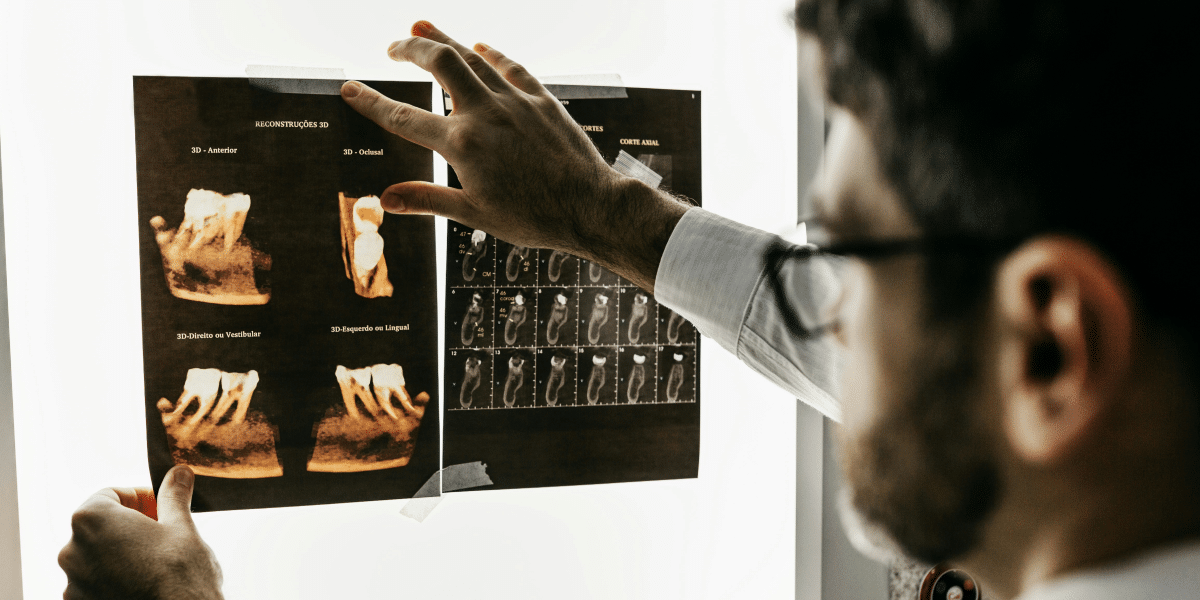By: Chiara Accardi
Not everyone has to deal with the pain and discomfort of wisdom teeth, but they can be painful (literally here) when they come in. You may be at a loss when you feel the crunching pain in your jaw or the lumps in your gums, and you may need to find out if they are related to wisdom teeth. Don’t be anxious; we will explain how to identify these signs of wisdom teeth and show you when to consult a dentist.
Learning these signs and symptoms of wisdom teeth coming in is the key to addressing any issues early on and preventing further outbreaks. You then will have a healthy smile.
Early Signs of Wisdom Teeth Emergence
The third molars, or wisdom teeth, usually come between 17 and 25. It can be the first signs of wisdom teeth coming in with no adverse symptoms, but others can be a cause of aches in the jaw, swelling of gums and difficulties in opening your mouth. Diagnosis and management of wisdom teeth problems in the early stage can be a preventive measure against complications to preserve good oral health.
When Wisdom Teeth Turn Troublesome: Consider Signs to See Your Dentist
Wisdom teeth, i.e., third molars, are quite a mystery to many people. These usually erupt in the late teens or early twenties and may be a source of discomfort. Some people can get their wisdom teeth without any issues, but others become impacted (they are stuck under the gum tissue or bone), which causes different troubles. However, the question is, when is the time to go to the dentist? Here are some key signs of wisdom teeth infections to watch for:
- Pain and Swelling: These are the common signs of wisdom teeth causing problems. This new tooth may shift the surrounding teeth or swell the gums, which may cause pain and swelling. The Journal of Oral and Maxillofacial Surgery study showed that people with wisdom teeth suffer from a much higher risk of pain than those without impacted teeth.
- Difficulty Chewing or Opening Your Mouth: The wisdom teeth are trying to seek space, which could result in crowding of molars and eventually making it difficult to chew properly. It can lead to the obstruction of food and can even reduce the width of your mouth when you try to open it.
- Redness and Bleeding Gums: A healthy gum area should have a firm and pink appearance. You can know that the major signs of wisdom teeth, like gums around, are affected by an infection if they are red, swollen, or bleed very easily.
- Bad Breath or Unusual Taste: Wisdom teeth can often host food particles, which can be lodged around them, resulting in bad breath or an unpleasant taste in your mouth.
Early Intervention is Key
If you experience any of these signs of wisdom teeth, don’t wait for the pain to worsen. Early diagnosis and treatment of wisdom teeth problems can help prevent complications like infection, damage to nearby teeth, or even jawbone cysts. A 2019 review published in the British Journal of Oral and Maxillofacial Surgery concluded that early removal of impacted wisdom teeth may be beneficial to avoid future issues.
Remember, your dentist is your partner in oral health. By scheduling regular checkups and discussing wisdom tooth concerns, you can ensure a smooth and healthy transition as these third molars appear (or not!).
Post-Extraction Complications: Signs of Infection
The removal of wisdom teeth will result in the necessity of observation. Moreover, the surgery-specific care plan. This is also necessary to avoid various infections, which may seriously impact the curing process. The recovery period could also be prolonged, and the situation could worsen even more, resulting in more serious health conditions if action is not taken early enough.
One of the crucial aspects of a trouble-free and uneventful recovery is the ability to detect the early symptoms of infection post-wisdom teeth removal and act immediately.
Why Post-treatment Care is Essential: After Removal of Wisdom Teeth
The whole wisdom tooth removal process can be a real headache, and no less important is the aftercare than the surgery itself. Here’s why taking good care of your mouth after a wisdom tooth extraction is essential for a smooth recovery:
Fighting Off Infection:
- Saltwater Rinses: Among the critical aspects of aftercare is flushing your mouth with a mouthwash solution (saltwater). He rinses aid in clearing up food particles and bacteria from the extraction area, which would otherwise lead to the development of an infection. Imagine it as the softest way to flush anything that can stir up trouble down the drain.
- Gentle Brushing: Brushing your teeth is still necessary after surgery, yet it is better to be very soft and gentle towards the extraction sites. However, you don’t want to knock out the blood clot that forms there, which plays a role in the healing process.
Final Thoughts
To manage oral health care, identifying the symptoms of unusual complications and signs of wisdom teeth, whether they are emerging or have been extracted, is imperative. Regular consultation with a good dentist can prevent serious infections and assures proper dental wellness if you are looking for a dentist in Abington.
In that case, you can visit Premiere Dental dentist in Abington for top-notch quality consultations regarding your dental needs, especially signs of an infection after wisdom teeth removal. Book early consultation and adhere to dental professionals’ guidelines to help at the core of a good recovery and long-term healthy mouth.
Medical Disclaimer: This content is for informational purposes only and is not intended as medical advice, nor does it replace professional medical expertise or treatment. If you have any concerns or questions about your health, always consult with a physician or other healthcare professional.
Published by: Khy Talara

















